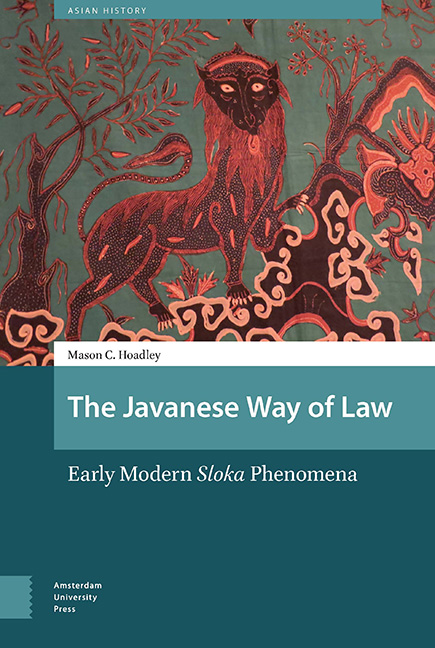Summary
While sloka tend to be over-rated, especially in the Berlin Surya Alam, and aksara locked into a dictionary meaning, sinalokan are almost invisible in the scholarly literature. This contrasts to their documented presence within most legal texts of the Independent Kingdoms era supplemented by a modest number of cases contained in the Dutch East India Company records. Equally perplexing, the titles containing sinalokan provide no textual clarification of the type seen in instances of explanations for sloka or clarifying context for aksara. This is with the partial exception of those found in the Jaya Lengkara created by a process of kinawi, i.e., being formulated in literary Javanese considered below.
The number of sinalokan, in fact, greatly surpasses the limited number of Classic Sloka or aksara. The Jugul Muda contains a dozen or so sinalokan in the title's second half. The Jaya Lengkara cites roughly the same number, albeit in a special form, and a smaller number are contained in the minor works as the Adilulah, Arya Dilah, and Cacad. These are, however, outnumbered by those cited in the Luwangan Undhang-Undhang. Each of that title's fifty paragraphs contains between one and three sinalokan. To these come the sinalokan expressed in two published didactic cases, as well as half a dozen or so resulting from judgments of the Cirebon-Priangan jaksa court of the early eighteenth century recorded by the Dutch East India Company archives. This makes their absence in the Pepakem Tjerbon text even more puzzling. The Jimbun Slokantara II contains mostly, but not exclusively, sloka. Less clear is why the Kartasura Surya Alam of ca 1737 terms the dozen or so cited phrases as ‘sloka’, even though they are clearly sinalokan. Other versions of that title are exceedingly sparing of sloka and sinalokan.
A contributing factor must be the concept's grammatical ambiguity. Sinalokan are formed by the addition of the passive infix ‘-in-’ plus a general suffix ‘-an’. Among other things, the latter specifies the ‘means or instrument of the action’. In the titles under consideration it can be read as ‘made into sloka as an instrument’, or ‘as contained in the sloka [which follows]’.
- Type
- Chapter
- Information
- Javanese Way of LawEarly Modern Sloka Phenomena, pp. 111 - 126Publisher: Amsterdam University PressPrint publication year: 2019

